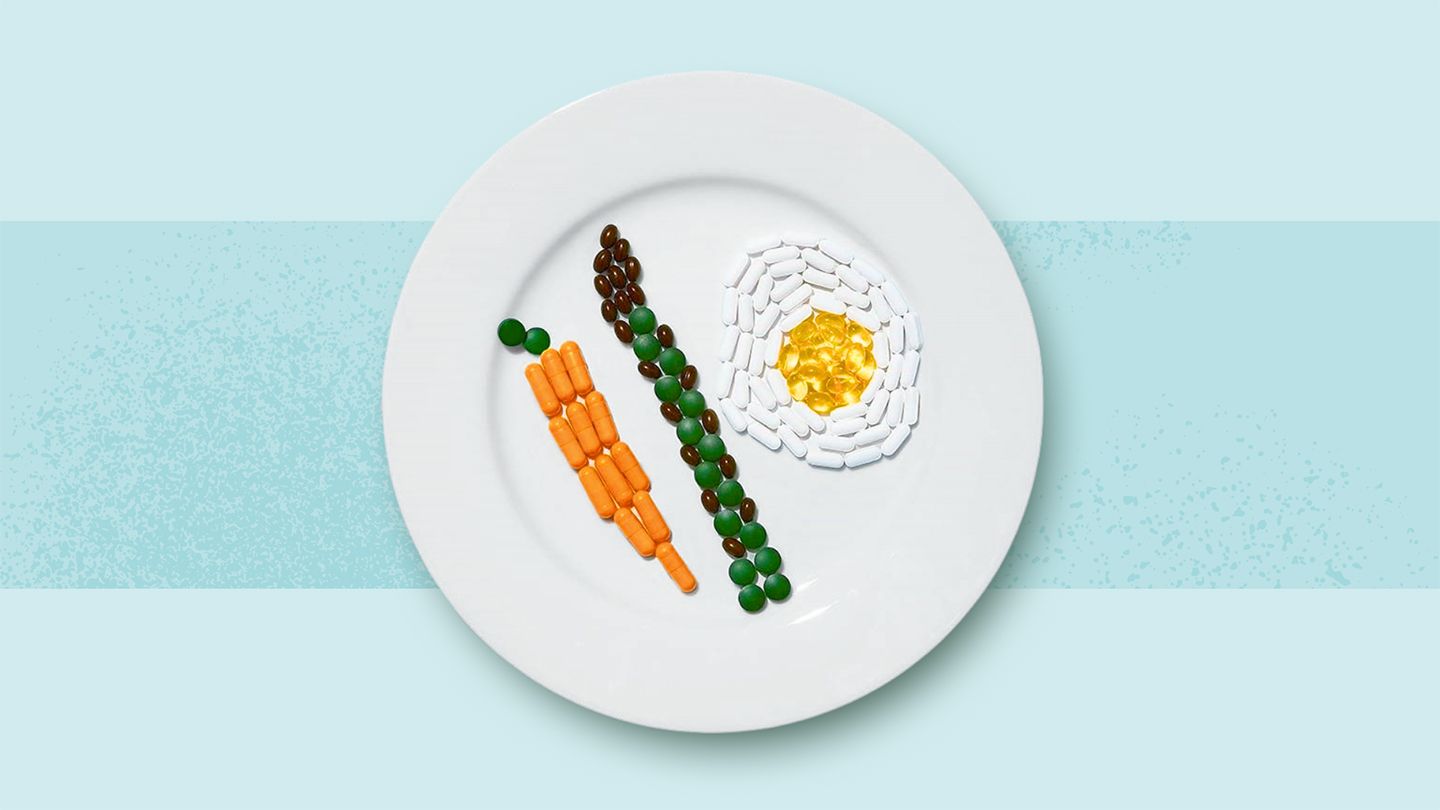1. Calcium and Vitamin D
Calcium is important for strong bones, as well as muscle and nerve function. Vitamin D helps your body absorb calcium and promotes bone health.
Low stores of calcium and vitamin D are the main vitamin and mineral deficiencies in people with UC, says Kristi L. King, MPH, RD, a senior pediatric dietitian at Texas Children’s Hospital and a clinical instructor at the Baylor College of Medicine in Houston.
When you have this condition, “the intestines and colon don’t absorb nutrients in the same way they do for someone without the disease,” King says. Many drugs commonly prescribed to treat colitis, such as prednisone, can also interfere with calcium and vitamin D absorption when used for longer periods of time, she adds.
Additionally, losing calcium and vitamin D will lower your bone density and put you at risk of osteoporosis (bone loss) and osteopenia (the stage before osteoporosis). Up to 60 percent of people with IBD have lower-than-average bone density. Similarly, a review study published in 2020 found a likely association between UC, decreased bone density, and osteoporosis.
You may not have any noticeable symptoms, but your gastroenterologist should regularly check for these deficiencies as part of UC treatment, King says. Over-the-counter supplements can help restore healthy levels, but be sure to talk to your doctor before trying any new supplements to find out what kind and how much you should take.
Making some changes to your diet can help, too. Dairy products are rich in both calcium and vitamin D, but according to research published in Nutrients, some people with UC restrict dairy from their diets after their diagnosis thinking that it will trigger symptoms.
If you’re sensitive to dairy, consider soy or rice milk that’s fortified with calcium and vitamin D instead. You can also eat more leafy green vegetables (cooked to minimize bowel irritation), which are rich in calcium.
2. Iron
Iron is a mineral that helps your body produce hemoglobin, a protein in red blood cells. Red blood cells carry oxygen throughout the body. It’s also important for the health of your muscles and nerves.
Iron deficiency is extremely common in people with IBD. Roughly 14 to 19 percent of patients have anemia, which happens when your blood doesn’t have enough healthy red blood cells because your body lacks iron.
Another 37 percent experience iron deficiency but not severe enough to cause anemia. This deficiency may be due to blood loss from bloody diarrhea or internal ulcerations of the colon, or it could be caused by some drugs used to treat UC, such as cholestyramine. People who menstruate are also prone to iron deficiency, which may make iron deficiency more pronounced in people with IBD.
All patients with IBD need to be screened for anemia — every 6 to 12 months for patients in remission and at least every 3 months for patients with active inflammation.
“Symptoms of iron deficiency include fatigue, pale skin, and a profound craving for ice or mud” (odd as that may sound), says David T. Rubin, MD, the Joseph B. Kirsner Professor of Medicine and the chief of gastroenterology, hepatology, and nutrition at UChicago Medicine in Illinois.
When it comes to treating iron deficiency, iron supplements are an option, but they may make UC symptoms worse in some people, and their efficacy is not proven in people with non-anemic iron deficiency. Talk to your doctor before trying any new supplements to find out what kind and how much you should take. Taking too much iron can lead to side effects like constipation, upset stomach, diarrhea, and nausea, among others.
Intravenous iron infusions are another option, which are more effective at replenishing iron stores and work faster and more efficiently than oral supplements with fewer side effects.
Only very rarely are blood transfusions used, Rubin says. Once your iron stores are back to normal, eating an iron-rich diet with foods like lean meats and cooked leafy greens like spinach can help keep your iron at a healthy level.
3. B Vitamins
B vitamins are a group of vitamins that help your body get energy from the food you eat.
People with UC may have problems absorbing folate — also known as folic acid or vitamin B9 — and other B vitamins, especially vitamin B12, which plays a crucial role in healthy cell growth and osteoporosis prevention. Prior research found that patients with IBD tended to have lower folate levels than healthy patients.
Vitamin B12 is absorbed in only one part of the small intestine, known as the ileum, right before it joins the colon, says King. Some medications, such as cholestyramine and sulfasalazine, can prevent B12 from being absorbed in this area and interfere with folate absorption, too.
Signs of a vitamin B deficiency may include fatigue, unintended weight loss, and tingling in the fingers and toes, among others. And a deficiency of vitamin B12 may cause memory problems, according to research.
Once diagnosed by a blood test, folate and vitamin B12 deficiencies may be treated with over-the-counter supplements. But if you’re on a medication that interferes with vitamin B12 absorption, a B12 prescribed supplement or injections of the vitamin may be needed to maintain a healthy level. Be sure to speak with your doctor before trying a supplement to find out what kind and how much you should take.
In addition to treatment, aim to eat a diet rich in sources of B vitamins and folate, like meat, poultry, and eggs, to maintain healthy levels.
4. Potassium
Potassium is a mineral that the body needs for nearly all functions, including heart, muscle, kidney, and nerve functions.
Potassium may play a role in reducing inflammation in people with UC. Prior research found that people with active UC had lower urinary potassium levels than people without the condition. More research is ongoing to determine potassium’s clinical use, but it’s well known that the chronic vomiting and diarrhea that can result from UC, as well as the use of corticosteroids (prednisone), can lead to potassium deficiency.
King says potassium deficiency comes into play with UC because potassium is absorbed in the body through the colon. “The colon actually reabsorbs potassium, and it goes through the bloodstream that way,” she says. Symptoms of this deficiency may include muscle weakness, tiredness, constipation, or irregular heartbeat, among others.
Eating a diet high in potassium-rich foods, such as bananas, cooked leafy green vegetables, and potatoes, is usually enough to correct a potassium deficiency, says King.
It could also help to try a supplement, but be sure to talk to your doctor before beginning any supplements about how much potassium you need from a supplement. Getting too much potassium through an over-the-counter supplement can potentially lead to fatal heart arrhythmias.
5. Magnesium
Magnesium is a mineral involved in preventing bone loss — more than half the body’s magnesium stores are in our bones. And yet, deficiency is a common issue for people with UC because most of the mineral is absorbed in the ileum (the largest segment of the small intestine), which is often affected by the disease. Magnesium loss is also associated with chronic diarrhea in digestive disorders.
Symptoms of magnesium deficiency can include appetite loss, nausea, vomiting, muscle twitching, numbness, tingling, and mood changes, among others.
To treat this deficiency, you may need to take oral supplements or eat more magnesium-rich foods that you can tolerate, such as creamy peanut butter, spinach, and fish such as salmon or halibut. Dig into some Greek yogurt, since dairy products are a key source of dietary magnesium. Some common magnesium-rich foods, like nuts and dried fruits, may not be as easily digested. “You want to make sure to talk to your registered dietitian or doctor, because too much magnesium can cause diarrhea,” says King.
Ensure you talk to your doctor before trying a magnesium supplement to find out what kind and how much you should take.
The Takeaway
- Common symptoms of UC and even some medications used to treat the condition may affect your body’s ability to absorb vitamins and minerals, putting you at a higher risk of nutritional deficiencies.
- Some important nutrients to keep an eye on when you have UC include calcium, vitamin D, B vitamins, potassium, iron, and magnesium.
- In some cases, eating a balanced diet rich in various vitamins and minerals may be enough to raise your stores of certain nutrients.
- Sometimes an over-the-counter or prescribed supplement or intravenous infusions may be needed. Be sure to talk to your doctor before trying any new supplements to find out what kind and how much you should take.
Additional reporting by Ashley Welch and Christina Vogt.




